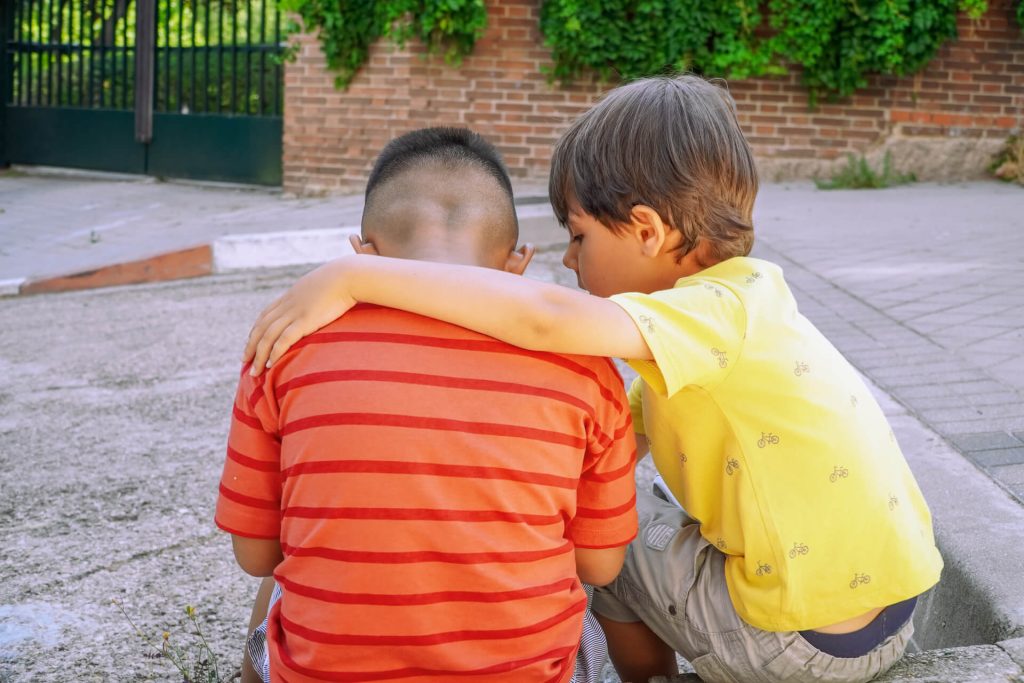Parenting is the art of building trust and love, and these bonds between parents and children are created from the earliest childhood through daily gestures of attention, listening, and sincere communication.
While children are young, we often forget how important it is to give them our full attention and complete presence, which we can't be blamed for due to the hectic lifestyle that almost all of us lead these days. We often interrupt them while they're speaking, don't show patience when they want to tell us something, and frequently jump to conclusions out loud and condemn something our child has said. Although it may not seem significant at that moment, such instances build the foundation for future relationships. If we don't listen to them now, it will be difficult for them to confide in us later, when they need it most.
Remember yourself as a child
I have a little secret – when I don't know how to act as a parent, I remember my own childhood. I'm fortunate to remember a lot from my childhood, so I try to apply what I loved when I was little in my relationship with my children. It's not said in vain: "Be for your child the person you needed when you were a child."
If my children invited me to sit on the floor and play with them with small furniture, Lego, figurines, toy cars, I would completely immerse myself in the role, as if I were a child again. Not as an adult who sat down to play with them, but as "one of them". I would run with them in the park, and when they invited me to their little house they had made, I would act as if I were a guest at the most important tea party. Sitting and playing with children is an invaluable experience and a real privilege. It's not just an opportunity for fun, but also for building trust and closeness. When I engage in their play, they feel that I understand and respect them. I don't look down on them, but join them in their world.
In this way, we were not only having fun, but also building a strong, unbreakable bond.
Let's make something together
Another way we build our relationship is through joint projects. Regardless of the season, we love to make something together. In addition to going to the market together in autumn and visiting children's theater shows, we agree to collect leaves, pinecones, and chestnuts and make figures from them following advice from the internet. In winter, you can make multi-story houses from cardboard boxes, and in summer, for example, from popsicle sticks, and then decorate them. These moments of working together not only develop children's creativity but also strengthen your bond.
Through these projects, the child learns patience and teamwork, and especially enjoys the feeling of having achieved something, successfully completed with a visible result, while I feel that we are creating memories.
Listen to them, but truly patiently and attentively
If we don't learn to respect their words and feelings while they're young, they won't turn to us when they're older, when they want to boast about something, complain about something, or ask for advice when they have problems. That's why it's crucial to give them attention and talk to them as little people - people whose thoughts matter.
Listening is not just about hearing what children are saying - how we listen is also important. To truly understand their inner world, it's helpful to ask them questions. But not just any questions, rather open-ended questions that encourage their thinking and allow them to express themselves in a deeper way. Instead of asking: "Did you have a nice time in kindergarten?", it's better to ask: "What was the most interesting thing for you in kindergarten today?" or "Who did you play with the most today?".
Such questions encourage them to open up and share their experiences, thoughts, and feelings. In this way, we gain insight into their small worlds and develop a deeper understanding of their needs and emotions. Not only will we more clearly and better understand the child's perspective, but the child will also see that we understand them better and feel a greater closeness with us.
Books, games, series - conversation starters
I love those moments when we laugh together or discuss books because in those moments we feel that special connection. The book we read becomes "our" book.
With school-age children, this can also be a series appropriate for their age that we watch together with a complete ritual of popcorn and drinks, and during "movie night", after each episode, there's an analysis of characters and events.
Also, both children and adults are particularly relaxed while playing board games - they say whatever comes to mind. Afterwards, we spend a long time recounting who bought what from whom in Monopoly or how we reacted when someone "ate" us while playing Ludo.
With school-age children: for cakes and a walk
As children grow, they strive for independence, increasingly turn to their peers, confide in them, seek advice from them, rely on them, and distance themselves from us - which is completely natural. However, I've noticed that my children open up the most during walks. When we leave the house, without obligations and daily distractions, our conversations flow more easily. A convenient and spontaneous moment for conversation is when we sit together in a café for ice cream or lemonade. The relaxed environment often gives them space to open up and share thoughts they wouldn't normally express at home.
What's most important to me is to build a relationship where children will always know they can turn to me. When we show them that their thoughts and feelings are no less important just because they're children, it means a lot to them and they remember it. And then, when moments of doubt or problems come, they'll know they can rely on us. Our bond is built day by day, through small, everyday moments, and that's what makes parenting so special.





